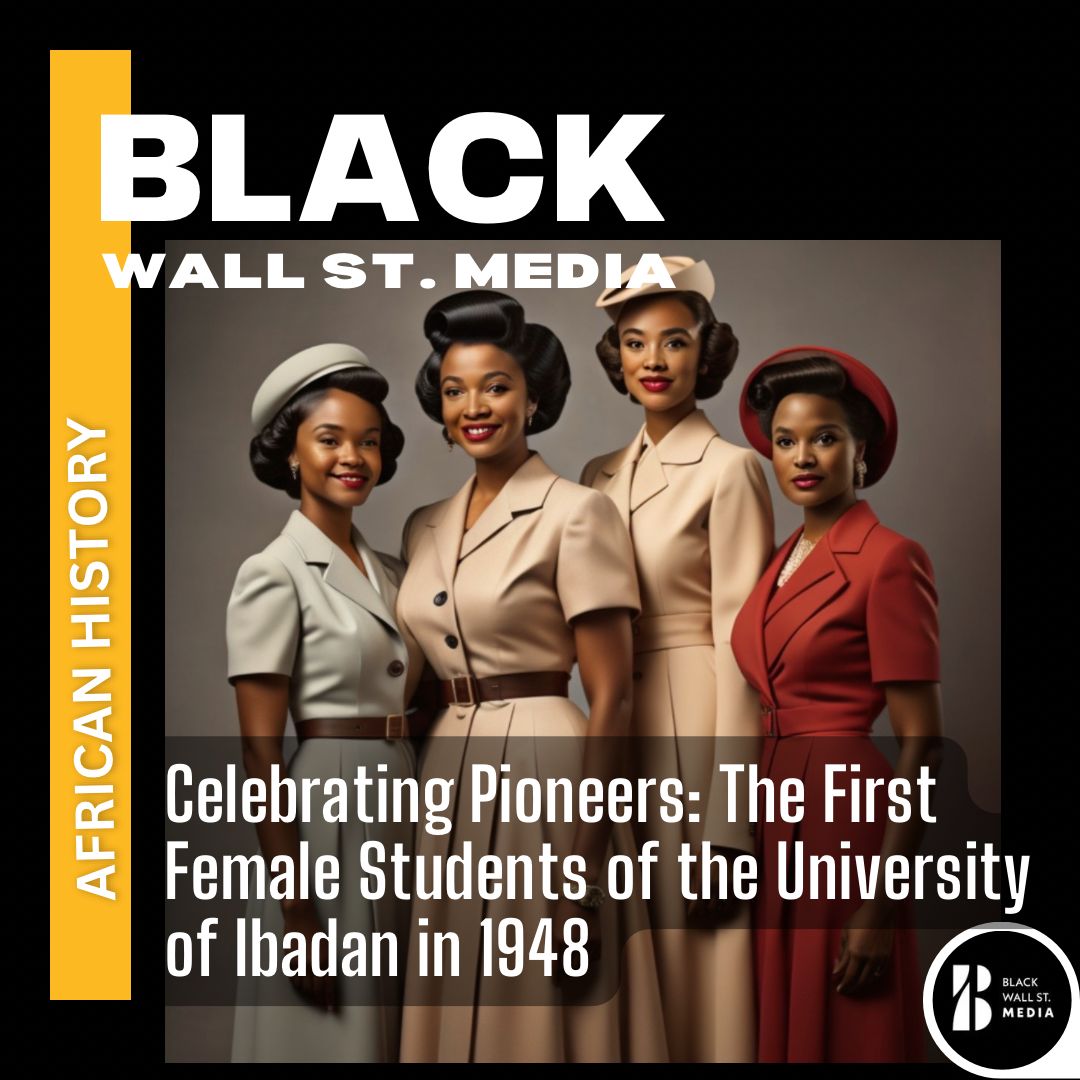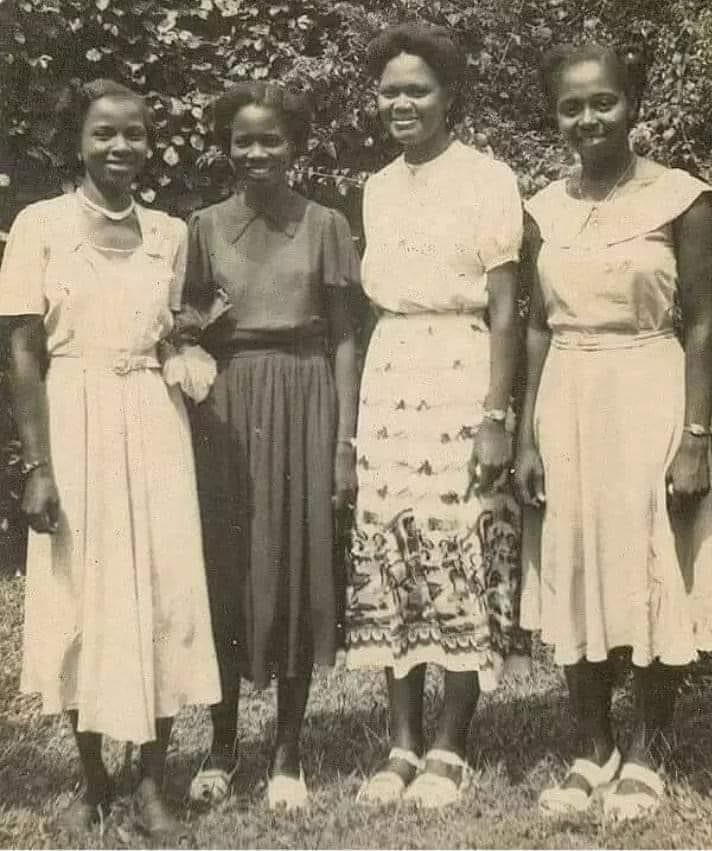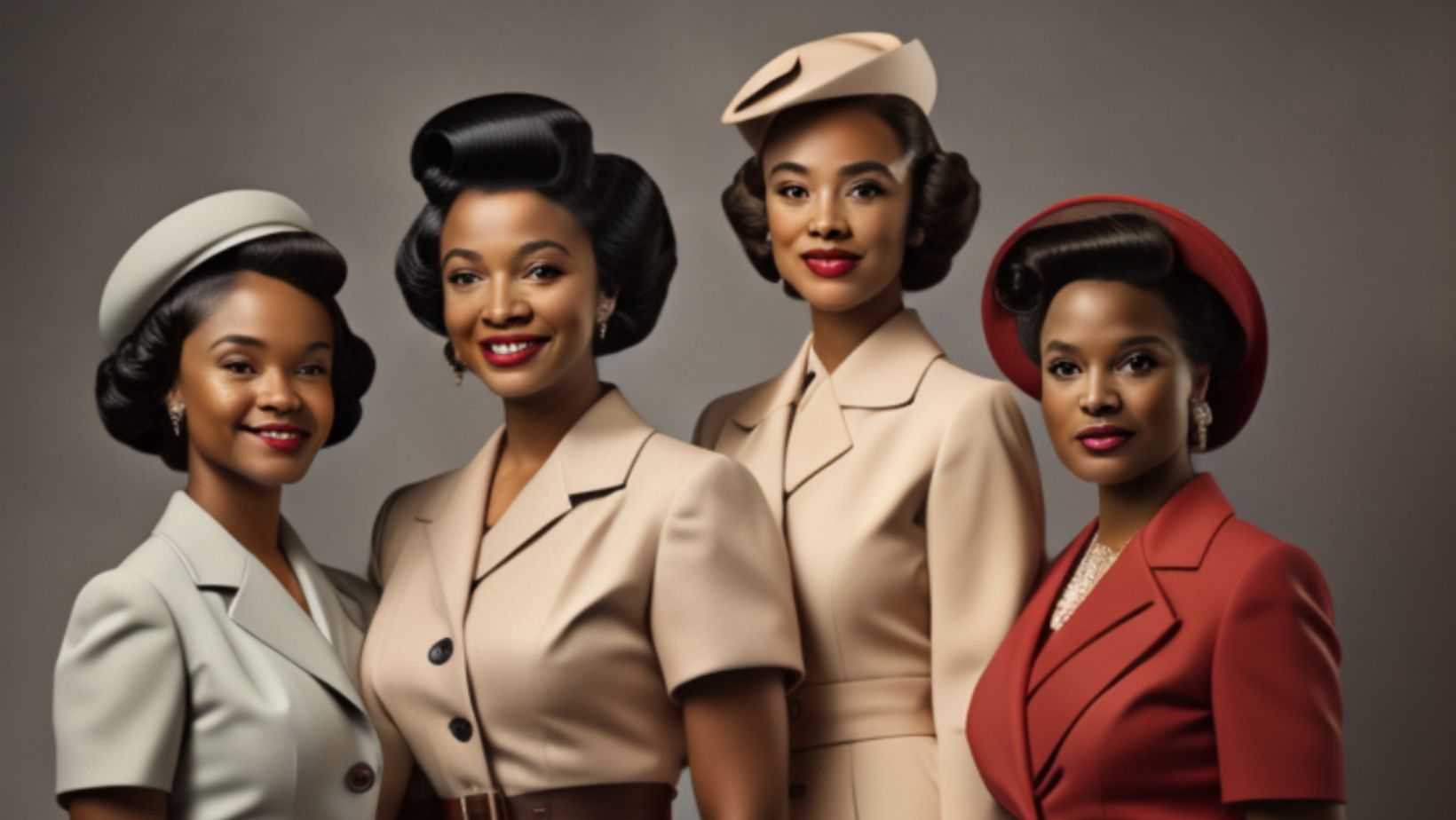HISTORY
The First Female Students of the University of Ibadan in 1948
“Discover the incredible story of the pioneering women who defied norms, shattered stereotypes, and made history as the first female students of the University of Ibadan in 1948. These trailblazing women not only transformed their own lives but also left an indelible mark on Nigeria's education system and the empowerment of women. Join us as we celebrate their remarkable achievements and their enduring legacy in our latest article.”
Black Wall St. MediaContributor

Celebrating Pioneers:
The First Female Students of the University of Ibadan in 1948 In the annals of history, there are moments and individuals who redefine norms, shatter glass ceilings, and pave the way for generations to come.
Such is the story of the remarkable women who were the first female students of the University College Ibadan, now known as the University of Ibadan. In 1948, these trailblazers embarked on an educational journey that would not only transform their lives but also the landscape of education in Nigeria. The First Female Graduates:

From left to right, they are: Florence Gabrielle Abio̩la Adeniran (née Martins) Oluso̩lape Folaşade Ifaturoti (née Akinkugbe) Grace Awe̩ni Alele-Williams (née Alele) Adetowun O̩mo̩lara Oguns̩e̩ye̩ (née Banjo̩) Florence Gabrielle Abio̩la Adeniran (91 years)
A Pioneering Quartet In a poignant photograph captured in 1953 on their graduation day, the faces of these pioneering women shine with hope, determination, and a vision for the future.
Florence Gabrielle Abio̩la Adeniran, LRCP (Lond.), MRCS (Eng), MPH (Mich), is a distinguished Nigerian surgeon and medical practitioner. Born in October 1930, she etched her name in history as the first woman to obtain a medical degree in Nigeria, courtesy of the University of Ibadan.
Her accolades extend to being the inaugural female director of the Nigerian Health Management Board in 1986. She is married to barrister and author Adedapo̩ Adeniran, and together they have two children.
In 1990, she retired from her illustrious medical career, leaving an indelible mark on the field.
Oluso̩lape Folaşade Ifaturoti (91 years) Oluso̩lape Folaşade Ifaturoti is not only known for her academic achievements but also her remarkable virtues and compassionate nature. She attended Queens College, Lagos, and was offered admission to University College Ibadan (UCI) at the tender age of 19.
Her journey was marked by her remarkable determination. Grace Awe̩ni Alele-Williams (89 years)
Grace Awe̩ni Alele-Williams, born in 1932, was a pioneer in her own right.
A professor of mathematics education, she achieved the milestone of becoming the first female vice-chancellor in Nigeria, serving at the University of Benin.
Her academic journey led her from University College Ibadan to the University of Chicago, where she obtained her doctorate degree in 1963, becoming the first Nigerian woman to earn this distinction. She returned to Nigeria for postdoctoral work at the University of Ibadan before joining the University of Lagos in 1965.
Her legacy in academia and leadership continues to inspire.
Adetowun O̩mo̩lara Oguns̩e̩ye̩ (95 years) Born in December 1926 in Benin City, Edo State, Adetowun O̩mo̩lara Oguns̩e̩ye̩ holds a unique place in Nigerian history. She is celebrated as the first female professor in Nigeria and the first professor of Library and Information Service.
Her academic journey took her to the University of Cambridge, where she became the first Nigerian woman to earn a degree from this prestigious institution. An activist for women’s social rights, she was granted a scholarship to study geography at Newnham College, University of Cambridge, in 1973.
Her unwavering commitment to education and gender equality made her a trailblazer in her own right. Erasing Stereotypes and Making Nigeria Proud These remarkable women were not only pioneers in education but also champions in erasing stereotypes that once held women back.
Their accomplishments, dedication, and resilience shattered the myth that a female child is not useful and that women should be confined to the kitchen alone.
Their collective achievements not only transformed their lives but also left an indelible mark on Nigeria’s education system and the empowerment of women. They became idols, not just for their generation but for generations to come.
The photograph from their graduation day in 1953 serves as a powerful reminder of the pivotal role they played in shaping the future of women’s education and empowerment in Nigeria.
As we celebrate these exceptional women, we honor their legacy and recognize that they were not just students of history; they were the architects of history, and their contributions continue to resonate through the ages.
”In the words of the Yoruba Cultural Heritage Center, they are our idols, our "slay queens," and they made Nigeria proud.
Black Wall St. MediaContributor







